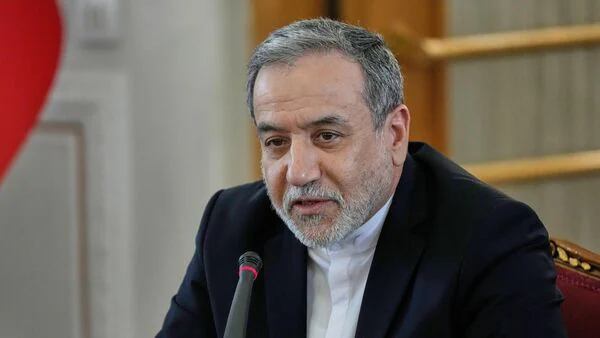
Iran Says It's 'Grateful, But Won't Meet Those...' As It Snubs Sisi's Gaza Peace Summit Invite
Iran has turned down an invitation from Egypt to attend the Gaza Peace Summit, also known as the Sharm el-Sheikh Summit, citing its unwillingness to engage with nations it accuses of aggression and sanctions. The decision, announced by Iranian Foreign Minister Seyed Abbas Aragachi on Sunday evening, comes just hours before the high-level gathering co-chaired by US President Donald Trump and Egyptian President Abdel Fattah al-Sisi, aimed at strengthening the fragile ceasefire between Israel and Hamas.
Aragachi wrote on X (formerly Twitter) that while“Iran is grateful,”
“neither President Pezeshkian nor I can engage with counterparts who have attacked the Iranian People and continue to threaten and sanction us.”
According to state-run IRNA, Egypt's al-Sisi had invited Iran to join Monday's discussions in the Red Sea resort of Sharm el-Sheikh.
What message did Tehran send to Washington DC and its allies?The Iranian foreign minister's comments - a thinly veiled swipe at the United States and Israel - were accompanied by renewed calls for ending Israeli military action in Gaza. Despite rejecting the invitation, Aragachi maintained that Tehran supports any credible peace effort that upholds Palestinian rights.
“Iran welcomes any initiative that ends Israel's Genocide in Gaza and ensures the expulsion of occupation forces,” he said.“Palestinians are fully entitled to secure their fundamental right of self-determination, and all States remain obliged, more than ever, to assist them in their lawful & legitimate cause.”
He added:
“Iran has always been, and will always remain, a vital force for peace in the region. Contrary to the genocidal Israeli regime, Iran is not after Forever Wars - particularly on the dime of its purported allies - but seeks Forever Peace, Prosperity, and Cooperation.”
Why is Tehran taking this stance?Iran's refusal comes in the wake of heightened regional tensions. In June, Washington joined Israel in attacks targeting Iran's nuclear sites during a 12-day conflict, deepening animosity between Tehran and Western powers.
While emphasising support for any initiative“to end Israel's genocide in Gaza” and safeguard Palestinians' right to self-determination, Aragachi made clear that Iran would not engage diplomatically with countries it believes are complicit in its oppression.
Since the 1979 Islamic Revolution, Iran has refused to recognise Israel and has positioned support for the Palestinian cause as a central tenet of its foreign policy.
What is the Gaza Peace Summit about?The Sharm el-Sheikh meeting, co-hosted by Trump and Sisi, seeks to consolidate the recent ceasefire and develop a political roadmap for Gaza's reconstruction. Over 20 global leaders are expected to attend - though notably, neither Israel nor Hamas will take part.
President Donald Trump departed for the Middle East on Sunday, calling the moment a“turning point” for the region following the US-brokered ceasefire and hostage deal between Israel and Hamas.
“The war is over, OK?” Trump told reporters before take-off.“I think people are tired of it.”
He argued that the ceasefire would hold, crediting his administration's backing of Israel's offensive against“Iranian proxies, including Hamas in Gaza and Hezbollah in Lebanon.”
According to the White House, momentum is building among Arab and Muslim states eager to resolve the long-standing Israeli–Palestinian conflict and, in some cases, to deepen cooperation with Washington.
What does Iran's absence mean?Iran's refusal to attend underscores the lingering diplomatic fractures that continue to complicate peace efforts in the Middle East. While Tehran insists it seeks“Forever Peace,” its decision to stay away from the negotiating table highlights just how divided the region remains - even in a moment of fragile calm.
Legal Disclaimer:
MENAFN provides the
information “as is” without warranty of any kind. We do not accept
any responsibility or liability for the accuracy, content, images,
videos, licenses, completeness, legality, or reliability of the information
contained in this article. If you have any complaints or copyright
issues related to this article, kindly contact the provider above.
Most popular stories
Market Research

- Versus Trade Launches Master IB Program: Multi-Tier Commission Structure
- Mutuum Finance (MUTM) New Crypto Coin Eyes Next Price Increase As Phase 6 Reaches 50% Sold
- Flexm Recognized As“Highly Commended” In The Regtech Category At The Asia Fintech Awards Singapore 2025
- Tappalpha's Flagship ETF, TSPY, Surpasses $100 Million In AUM
- Stocktwits Launches Stocktoberfest With Graniteshares As Title Partner
- Pendle Grows An Additional $318 Million TVL Just 4 Days After Plasma Launch




















Comments
No comment